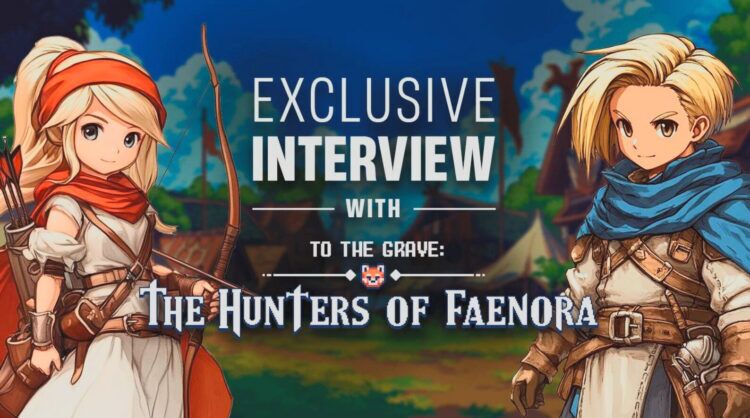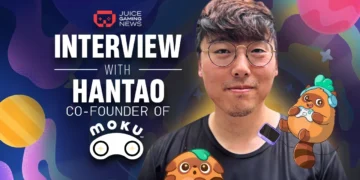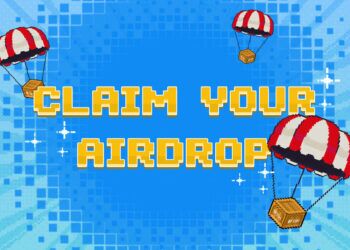Quick Take
- 2TG blends classic tactics with roguelite design and optional blockchain-powered progression
- Mercenaries unlock leaderboard access, $MCHY earnings, and long-term progression paths
- Players can onboard without wallets, with full gameplay available on Steam alpha demo
Inside the Tactical Depth of Faenora’s Web3 RPG Ecosystem
The FaenoraVerse is shaping up to be a genre-blending tactical RPG experience, led by indie studio 2TG with a dual-release structure across two titles: Wildlands of Faenora and Hunters of Faenora. Built around pixel art, roguelite mechanics, and optional Web3 integration, the series brings turn-based strategy to a player-owned economy without forcing token systems on newcomers.
With over a year of iterative development and community input, the team has introduced NFT-based mercenaries, high-stakes competitive modes, and a hybrid token model designed for sustainability. The platform supports both casual players and deeper economic participation through a sponsor mechanic, all centered around tactical combat and meaningful decisions.
We spoke with 2TG founder and CEO Nathan Montgomery to break down the vision behind Faenora, how $MCHY fits into the loop, and why they believe a low-friction entry point is key to long-term adoption.
Let’s start with the world of Faenora. What sparked the decision to build a tactical RPG that blends roguelite gameplay with player-owned characters and an economy?
Growing up, my favourite games were Final Fantasy Tactics and a lesser-known series called Ogre Battle. We initially prototyped a more ambitious 3D strategy game in that vein, but quickly realized it was too big a bite for a new indie studio’s first game. That led us to pivot toward a pixel art roguelite tactics RPG – one that embraced deep replayability, meaningful choices and the nostalgic charm of classic tactics RPG games. The idea of player-owned characters and an in-game economy emerged naturally from the design itself. Importantly, these features are optional: players who enjoy diving into those systems will find extra layers of progression and personalization. But for those who just want a beautiful, engaging tactics game with heart? That core experience stands strong on its own.
For someone hearing about Wildlands for the first time, what kind of game is it? How would you describe the experience in a few sentences?
Wildlands of Faenora is a tactical RPG with roguelite elements, inspired by classics like Final Fantasy Tactics, Ogre Battle, and Slay the Spire. Set in the medieval fantasy world of Faenora, you’ll fight back against an invading corruption—either as a lone hero (Wildlands) or with a customizable squad of hunters (the web3 sister title, Hunters of Faenora). Every run is unique thanks to procedurally generated challenges, deep character progression and strategic turn-based combat. It’s a game that rewards smart play, experimentation, and mastery.
The Mercenary presale involved everything from community-driven pricing to a Create-to-Mint campaign for content creators. What did that launch teach you about building with your community and how do you see creators shaping the FaenoraVerse going forward?
Creators are the lifeblood of the FaenoraVerse community. In a space where healthy skepticism is the norm, creators play a critical role as trusted, independent voices. That’s why we prioritized giving them access to the alpha demo (across multiple iterations), so they could experience the game firsthand and provide meaningful feedback and honest content on socials. We’ve been building in public and their input has directly shaped how the game has evolved. The creators we partner with are handpicked based on passion and genuine interest in what we’re building, not just follower count. Some of our favourite creator moments have come from seeing smaller creators grow alongside the FaenoraVerse as they share their excitement for the game with their communities. That kind of alignment, between creator, community, and us as the development team, is exactly what we want the FaenoraVerse to stand for.
Hunt Mode is where the high-stakes gameplay really kicks in. What makes it different from Story Mode and why build a system where your characters can permanently die?
Hunters of Faenora is built around the idea of meaningful consequences. In Wildlands of Faenora (the story driven web2 game), your hero carries an amulet that revives them on death. It’s tough, but forgiving. In Hunters, Mercenaries don’t have that luxury. When they fall in battle, you’ll have two options: revive them using $MCHY (which feeds back into the game’s reward pool) or roll a brand new Mercenary (losing their stats, gear, and legacy). This high-stakes system creates real tension and strategic depth. Without risk, victories don’t feel earned. But we’ve also designed it so free-to-play players can experience the thrill without committing financially. It’s about finding your own comfort zone in a world that doesn’t hold your hand.
Why did you decide to include blockchain in Wildlands, and how does $MCHY function without falling into common token pitfalls?
From the beginning, we’ve approached blockchain as optional. We’re not here to force wallets or tokens onto players. We want people to experience the game first and then decide for themselves whether these features enhance their experience. For those who choose to opt in, blockchain unlocks two key benefits: First, it allows players to earn and trade value based on their time, effort and strategy (much like how players in games like World of Warcraft found ways to sell high-level characters or rare loot, but now with proper support and structure). Second, it enables automated, transparent reward systems that elevate the competitive stakes and create long-term incentives for skilled play.
Our hybrid NFT system (using MPL404) also connects $MCHY – our in-game reward token – to playable characters in a way that creates a sustainable, closed-loop economy. It’s all designed to support a better, fairer ecosystem for players who want to go deeper.
Sustainability is everything. The only reason we were open to launching a token at all was because of the unique structure offered by the MPL404 hybrid system. It gives $MCHY real, undeniable utility – each token represents a piece of an NFT character and, if you collect enough, you can mint a new, playable character. That’s the foundation for building a competitive, skill-based rewards system within the game. A lot of Web3 games have failed because of two key issues: focus, and economics. If you sell a token first, then your product becomes the token—and suddenly every game decision is distorted by token pressure. It’s nearly impossible to build a great game under those conditions. Then there’s basic supply and demand. Inflationary tokens might seem like an easy incentive tool, but if too much value is going out and not enough is coming in, the economy collapses. We’ve seen that story too many times.
A lot of players in Web3 are always curious about onboarding. Can someone enjoy Wildlands without ever touching a wallet or token? What’s the experience like for a purely non-Web3 player?
This is incredibly important to us. Before I started 2TG, I was baffled by how hard it was to even try most Web3 games. It’s still often way too complicated. Our goal is simple: you should be able to open the game and start playing within 60 seconds – no wallet, no NFT, no friction. We believe players should never be expected to buy before they try. If the gameplay is strong enough, then deeper engagement will follow naturally. For non-Web3 players, the experience is still a full roguelite loop. You’ll play with “recruits” (characters that reset every run) level them up, battle enemies and earn loot. What you won’t be able to do without a wallet is customize and own your characters or participate in the competitive reward system. But if you’re just here for a great game, that’s what you’ll experience from day one.
The community seems deeply involved from shaping mint pricing to spending Nethershards in alpha. What role does community input play in design decisions and future development?
I learned early on that I’m not just making this game for me. We’ve built a passionate, talented team and the community has become an extension of that team. Through alpha testing and open feedback, players have contributed ideas, bug reports, and even balance suggestions that have made the game stronger. We’ve created a whole new class – the Maiden – because we kept getting feedback that people felt it didn’t make sense for an archer to be promoted into a witch or a cleric. That helped us finalize our entire approach to our class tree and promotion system. Our job is to strike the right balance: how do we listen to the community and give them what they want, while still holding true to our creative vision? It’s a delicate process, but it’s so critical, because the future of the FaenoraVerse as an entertainment universe depends on this game succeeding as our inaugural capstone.
What’s next for the FaenoraVerse? For players just finding out about Wildlands now, what’s the best way to start playing or getting involved today?
Hunters of Faenora and Wildlands of Faenora are our primary focus right now. That said, we’re already exploring game design concepts for other titles in the FaenoraVerse, along with creative expansions that extend beyond gaming – into other entertainment media (like film, TV and comics) and more. Our cute (and slightly chaotic) red panda mascot, Moochkin, has a long journey ahead of him. We see him as a future ambassador of the FaenoraVerse across multiple formats. For now, our full energy is on making these first two games the best they can be and using that foundation to build something truly lasting for our players.
You can jump in is by downloading our alpha demo for The Wildlands of Faenora on Steam (and don’t forget to wishlist it while you’re there!). We’ve also just launched our new website at www.faenora.world, where you can check out the announcement trailer for Hunters of Faenora and get a peek at what’s coming.
For the latest updates, follow us on X (@FaenoraVerse), turn notifications on, and keep an eye out – because things in the FaenoraVerse are starting to get spicy!











Great article!!! Beyond excited for FaenoraVerse!!!